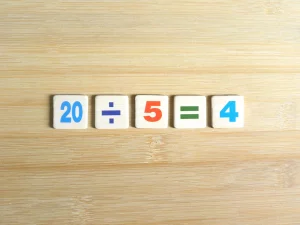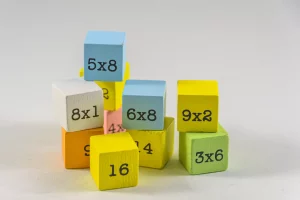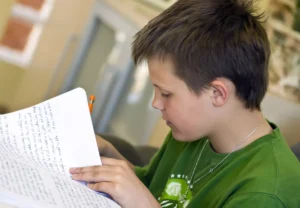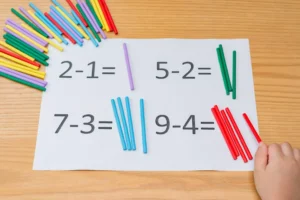There’s no denying that the pandemic has taken its toll on students worldwide, especially with both schools and colleges shutting down and exams being either postponed or cancelled. Yet, the importance of GCSE grades hasn’t decreased a bit.
In particular, GCSE Maths is among the most vital qualifications for your child to have and not obtaining a good grade could hinder their progress. It is recognised that GCSE Maths is challenging for many people, which is why a retake is always an option.
So, if your child has failed their GCSE Maths (i.e., did not achieve a grade 4, previously a grade C) or wants to improve their grade to progress to further education or skilled employment, rest assured that there is a ‘reset’ button. GCSE Maths can be re-taken, and a better grade obtained, from the comfort of home with one of our Jersey maths tutors.
Here are some tips for retaking GCSE maths online and preparing for higher education.
1. Finding a Reputable Online GCSE Maths Course
Both the studying and the exam for a GCSE Maths retake will be done online, thanks to the prevalence of online learning platforms.
While the perks of candidates studying at their own pace and in a comfortable environment of their choice are unparalleled, studying GCSE Maths online can be challenging if the right course provider isn’t there to support the experience.
Today, there are numerous GCSE online courses and GCSE maths online tuition centers, although some of them can be hard on the budget. Accordingly, you will need to take the time to research the courses thoroughly before making a decision.
Not sure what to keep an eye out for? Keep reading.
Accreditation
Firstly, you must choose a GCSE Maths course that is accredited by one of the recognised exam boards, such as OCR, Edexcel or AQA. That way, you ensure that your child is studying up-to-date course materials that adequately prepare them for the exam.
Ideally, the course syllabus should be comprehensive, incorporating algebra, geometry, probability, measures, and statistics.
Personal Tutor
Additionally, because studying maths can be challenging, choose a course that provides the services of a personal tutor to support your child’s education.
Distance learning can make all the difference when studying online – a tutor can be the ‘make or break’ element of the whole experience. That push by an expert tutor could be just what your teen needs to pass the exam.
Course Structure
Modern students expect and appreciate flexibility. The philosophy that underpins distance and online learning is ‘comfort’, and therefore, students should easily be able to schedule their tutorial sessions without the constraint they would encounter at school.
You’ll find that some course providers require enrolled participants to log a specific number of hours for studying per week or have a set timetable for attending the course. In contrast, others enable students to set their own schedule and work at their own pace.
Depending on your child’s study habits, you can determine the class structure that would support and best serve their knowledge and educational needs.
Additional Benefits
While those are the main aspects to look for, some GCSE courses go the extra mile and do their best to mimic a school classroom environment.
An example of an additional benefit would be access to live online maths sessions. Suppose you know that your child prefers to study maths in groups and enjoys the social aspect of education? In that case, you may want to consider GCSE maths courses that include live interactive online classrooms with tutors and other students learning alongside each other.
Other benefits include mock maths exams, career resources, interview simulators, course recordings, 24/7 online access to the content, and more.
2. Forming a Well-Designed Study Space
Now that you’ve weighed up the options and chosen the right maths course for your child, it’s time to tailor their surroundings in a way that motivates them to study. Remember, GCSE Maths is a subject that requires a huge amount of concentration, making it imperative to have a well-designed study space where your child can hone their maths skills.
You don’t have to go out of your way to do anything extraordinary – just make sure to dedicate a particular area for study where home life doesn’t interfere too much, and where there aren’t too many distractions.
3. Devising a Study Plan for Online GCSE Maths
In order to pass the exam or improve their grade via the retake, your child will need to make a change to the process by which they previously prepared. For that reason, sit down with your child and create a concise study plan including learning materials and a structured revision process.
Identifying milestones will help – perhaps set daily, weekly, bi-weekly, or monthly study goals to help them stay focused and on track. Breaking the course down in this way also relieves them of the stress of having to deal with all the material they need to get through at once. A study planner is ideal for this purpose.
The best piece of advice we can give here is to encourage your child to be realistic. If you or they set impossible milestones, they will feel demotivated when they don’t reach them. It’s much better to aim for realistic goals that they will meet and even surpass to motivate them to further study.
4. Using Past Papers as Mock ExamsFlexibility of Online Maths Tutors
Most students use past papers as a preparation tool for the GCSE Maths exam, so if your child didn’t use them the first time around, make sure they do this time! Even if they did, past papers should always be a part of the online GCSE Maths studying process.
Working on past papers has multiple benefits that pave the way for success. For one, they enable candidates to get acquainted with the exam format so that they don’t waste time doing so during the actual exam or retake. Additionally, students get a chance to see how grades are calculated and what the weighting allocation is for each question.
Last but not least, as with any mock exam, past papers help students identify in which areas they need to strengthen their knowledge. They’re also a great way to practice their timing, particularly if they are able to place themselves in an environmental setting with conditions similar to that of the exam.
While you’re devising your son or daughter’s study plan, make sure to set aside time for past papers and when it’s time to revise, encourage them to complete some without having their study materials and notes nearby.
5. Booking the GCSE Maths ExamFlexibility of Online Maths Tutors
Depending on current global conditions, the exam resit may take place either online or in person, regardless of the chosen provider.
Choosing the Right GCSE Maths Exam Paper
Before registering for the resit, it’s essential that your child decides which paper of the two available they want to sit. The options are:
- The Foundation Tier Exam: Grades 1 to 5 (old G to low B)
- The Higher Tier Exam: Grades 3 to 9 (old D to above A*)
When and Where to Book
Around six months before the GCSE exam date, you or your child should book a place for the resit at an exam centre, which is likely to be either a sixth form school or college. Schools and colleges usually open their classroom doors for other students to take GCSEs along with their own.
Alternatively, you could reach out to a local school or college to check whether they’d be willing to accept a private candidate. Most schools do accept private candidates but don’t always advertise it online.
Lastly, the opportunity to resit the GCSE Maths exam online has become more available in the last few years to support the e-learning era, so you could check that option too.
Fees
The exam centre where your child takes the exam will require a fee – as you’d expect, the exact amount varies depending on the centre.
Final Words
So, if your child has failed their GCSE Maths, or not met a required grade, a resit is likely to be the answer.
Most employers expect students to have achieved at least a pass grade in all their GCSEs alongside other requirements – for some it’s absolutely essential. For skilled employment, including apprenticeships, achieving a GCSE grade 9-4 (A*-C) in both Maths and English is usually required. Not to mention college and higher education courses that require passes in Maths and English at the very least, regardless of whether the course is directly related to those subjects or not.
Re-taking the GCSE Maths exam is a step in the direction of your child achieving their goals!












